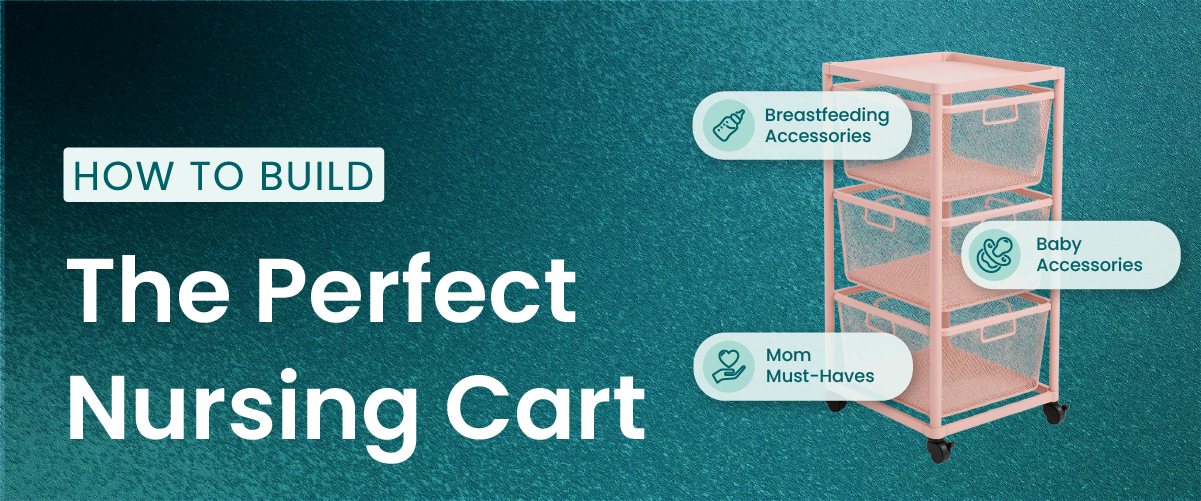Caffeine consumption is one of many practices mothers may have concerns about when deciding to breastfeed or provide breastmilk. What does safe consumption look like? With most things in nutrition, moderation is going to be key, caffeine consumption included! Common concerns with breastfeeding mothers and their caffeine intake range from how well your baby sleeps to how it affects the milk itself.
For many, that cup of coffee is a source of comfort and energy after a late night nursing, so it becomes an act of weighing pros and cons, and like most things in family health, an individual balance. So let's discuss what we know to be true about caffeine and lactation and how much is actually safe to have.
Potential Adverse Effects in Infants Breastfeeding
These effects are greatly influenced by baby's age and the amount of caffeine the mother consumes before feeding, typically more than 300 milligrams of caffeine a day.
- Increased wakefulness at night
- Jitteriness or fussiness, unable to settle consistently
- Increased heart rate
- Gastrointestinal discomfort or problems (GERD, gas, green (bile) stools
According to the CDC, the recommendation is to have less than 300 mg of caffeine a day for breastfeeding and lactating women to avoid side effects. Contact your health care provider/pediatrician if you are concerned about related issues.
The younger the baby, the more sensitive they are to caffeine, particularly under six months. Their metabolism and nervous systems are different and they also feed quite frequently, giving less time for the milk to filter and metabolize.
Recommendations
Caffeine passes from the mother to infant in small amounts through breast milk but usually does not adversely affect the infant when the mother consumes low to moderate amounts (about 300 milligrams or less per day, which is about 2 to 3 cups of coffee.)
Caffeine takes approximately 10-15 minutes to enter the bloodstream and breast milk. On average, caffeine will reach its highest concentration in about 60 minutes, depending on how fast it is consumed. At that point, the body begins metabolizing and lowering the levels. What is that concentration, though?
According to the National Institute of Health (NIH): Caffeine appears in breast milk rapidly after maternal ingestion. Insufficient high-quality data are available to make good evidence-based recommendations on safe maternal caffeine consumption. Fussiness, jitteriness and poor sleep patterns have been reported in the infants of mothers with very high caffeine intakes equivalent to about 10 or more cups of coffee daily. Studies in mothers taking 5 cups of coffee daily found no stimulation in breastfed infants 3 weeks of age and older. A maternal intake limit of 300 to 500 mg daily might be a safe level of intake for most mothers.
The evidence suggests that only 1-3.4% of the caffeine ingested gets ingested by the baby through breast milk. So it is also with the understanding that there is only low to moderate caffeine intake from the breastfeeding woman, 1-3 cups (8-24oz) a day of coffee, for example. This is a relatively low caffeine content and, therefore, should not affect behavior or sleep. However, newborns may be more sensitive to the effects of caffeine at the higher end of that range.
According to the CDC, the recommendation is to have less than 300 mg of caffeine a day for breastfeeding and lactating women to avoid side effects. Contact your health care provider/pediatrician if you are concerned about related issues.
Common Sources of Caffeine
Caffeinated Beverages
Caffeinated drinks are the most common sources. For example, an 8 oz cup of coffee (black) contains approximately 95 mg of caffeine.
- Coffee and Espresso (including decaf, which can typically still have up to 50 mg/cup)
- Tea (such as black tea, green tea, chai, yerba mate)
- Energy Drinks
- Sodas (unless specified otherwise as caffeine-free)
- Hot Chocolate
Foods with Caffeine
- Chocolate (milk and dark)
- Ice Cream (not naturally occurring but in certain flavors such as chocolate and coffee)
- Cereal
Supplements/Other
- Guarana
- Kola Nut
- Some Makeup and Eye Serums
Does Caffeine Have an Effect on Milk Supply?
The general answer to this is "No." No evidence suggests a change in volume or ability to produce due to caffeine intake. Milk production, luckily, is a pretty straightforward process.
As for the quality of milk, (like nutrient content, calories, and other ingredients specific to breast milk, such as immune-boosting leukocytes) it is not affected by caffeine consumption. The trace amounts found during peak concentration will, in fact, filter back out of the milk through the body's metabolic breakdown and digestion.
However, the half-life of caffeine lasts longer in the baby, so it's essential to lean into moderation and timing to mitigate the caffeine levels the breastfed baby may be exposed to.


Conclusion
If drinking coffee in the morning or having a treat like soda is something you enjoy, it's not something you have to give up: moderation is important. Remember to stay hydrated with water and electrolyte drinks, as needed. The older baby tends to have less known effects from the mother drinking moderate consumption of caffeine.
Resources
- Effects of maternal caffeine consumption on the breastfed child: a systematic review. Aimee McCreedya, Sumedha Birdb, Lucy J. Browna, James Shaw-Stewarta, Yen-Fu Chena https://pubmed.ncbi.nlm.nih.gov/30294771/
-
Drugs and lactation database (lactmed) - NCBI bookshelf. (n.d.). Retrieved September 29, 2022, from https://www.ncbi.nlm.nih.gov/books/NBK501922/
-
CDC: Maternal Diet: Diet considerations for breastfeeding mothers. https://www.cdc.gov/breastfeeding/breastfeeding-special-circumstances/diet-and-micronutrients/maternal-diet.html
-
McCreedy, A., Bird, S., Brown, L. J., Shaw-Stewart, J., & Chen, Y.-F. (2018, September 28). Effects of maternal caffeine consumption on the breastfed child: A systematic review. Swiss Medical Weekly. Retrieved September 28, 2022, from https://smw.ch/article/doi/smw.2018.14665
- Breastfeeding Answers Made Simple (Hale Publishing 2010, p. 521)
- Medications and Mother’s Milk (Hale 2017, p. 139-140)
-
MR;, S. I. S. M. A. D. (n.d.). Maternal caffeine consumption and infant nighttime waking: Prospective cohort study. Pediatrics. Retrieved September 28, 2022, from https://pubmed.ncbi.nlm.nih.gov/22473365/
-
DA;, T. J. A. A. C. (n.d.). Energy drinks: Implications for the breastfeeding mother. MCN. The American journal of maternal child nursing. Retrieved September 28, 2022, from https://pubmed.ncbi.nlm.nih.gov/26909852/
Information provided in blogs should not be used as a substitute for medical care or consultation.







